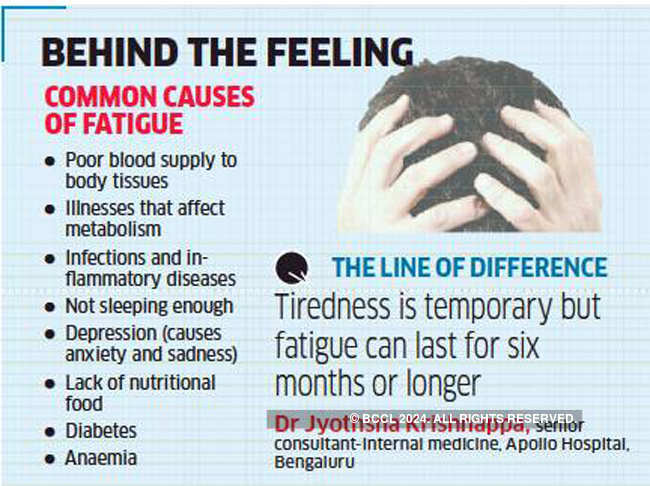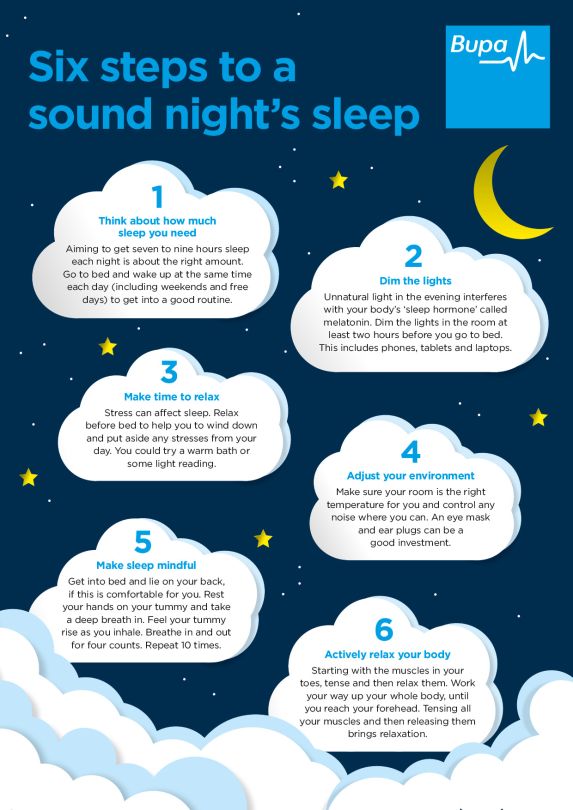Feeling constantly tired and sleepy with no energy can be caused by factors such as lack of sleep, an unhealthy lifestyle, stress, depression, and existing medical conditions. Lifestyle choices, including poor diet and insufficient exercise, can contribute to fatigue, while injury, illness, or medical disorders may also be underlying causes.
Additionally, medication side effects and sleep disorders may lead to excessive sleepiness. If you are experiencing chronic fatigue, it is important to consult a doctor for a proper diagnosis and treatment. It is common to feel tired and lack energy, and seeking professional guidance can help address the issues causing these symptoms.
Feeling sleepy and lethargic constantly can greatly impact one’s quality of life, and understanding the root cause is important for finding solutions. We will explore various factors that can lead to excessive fatigue and discuss potential steps to address this common issue.
Common Causes Of Tiredness And Fatigue
Do you find yourself constantly wanting to sleep and lacking energy? This could be due to a variety of factors such as insufficient sleep, an unhealthy lifestyle, stress, depression, or medical conditions. Identifying the underlying cause can help address your tiredness and fatigue.
Tiredness and fatigue are common complaints that many people experience regularly. If you find yourself constantly wanting to sleep and lacking energy, several factors could be contributing to your condition. Understanding these common causes can help you identify the root of the problem and take steps to overcome it. Let’s explore some of the most prevalent causes of tiredness and fatigue:
Not Getting Enough Sleep
One of the most obvious reasons for feeling tired all the time is not getting enough sleep. Skimping on sleep can leave you feeling sluggish, unfocused, and drained. It is recommended that adults aim for 7-9 hours of sleep per night to ensure they wake up refreshed and energized. If you consistently struggle with getting enough sleep, you may be dealing with insomnia or other sleep disorders. Consulting a healthcare professional can help address these issues and improve your sleep quality.
Unhealthy Lifestyle
Leading an unhealthy lifestyle can significantly contribute to feelings of tiredness and fatigue. Poor dietary choices, lack of exercise, and unhealthy habits like excessive alcohol consumption or smoking can all leave you feeling drained. A nutrient-deficient diet can rob your body of the essential vitamins and minerals needed for energy production, while a sedentary lifestyle can lead to muscle weakness and decreased stamina. Making healthy lifestyle changes such as eating a balanced diet, engaging in regular physical activity, and avoiding harmful habits can help boost your energy levels.
Stress And Depression
The modern world is filled with stressors that can impact our mental and physical well-being. Chronic stress and depression can be draining and lead to constant fatigue. The pressure of work, personal relationships, financial worries, or dealing with traumatic life events can all take a toll on your energy levels. It’s crucial to address these underlying stressors and seek support from mental health professionals or implement stress management techniques to alleviate fatigue.
Medical Conditions
Various medical conditions can cause fatigue and excessive sleepiness. Underlying health issues such as hypothyroidism, anemia, diabetes, and chronic fatigue syndrome can all contribute to persistent tiredness. Additionally, certain medications and their side effects can also cause drowsiness and lack of energy. If you suspect that an underlying medical condition is the cause of your fatigue, it’s essential to consult a healthcare professional for a proper diagnosis and appropriate treatment.
Identifying and addressing these common causes of tiredness and fatigue can help you regain your energy levels and improve your overall quality of life. By ensuring you prioritize sleep, adopt a healthy lifestyle, manage stress effectively, and seek medical attention when needed, you can take the necessary steps toward a more energized and vibrant life.

Credit: m.economictimes.com
Excessive Sleepiness And Hypersomnia
Excessive sleepiness and hypersomnia can significantly impact daily life, leading to constant fatigue and a lack of energy. Understanding the potential underlying causes for this persistent tiredness is crucial in finding effective solutions. Below, we explore the various factors that can contribute to excessive sleepiness and hypersomnia.
Inadequate Sleep
Consistently not getting enough sleep can lead to excessive sleepiness and hypersomnia. This could stem from factors such as insomnia, an unhealthy lifestyle, or stress.
Shiftwork And Family Demands
Shiftwork and familial responsibilities, especially those related to the care of a new baby, can disrupt sleep patterns and contribute to excessive sleepiness and hypersomnia.
Sleep Disorders
Underlying sleep disorders, such as sleep apnea, restless leg syndrome, or narcolepsy, can lead to chronic sleepiness and hypersomnia. Identifying and addressing these conditions is essential in managing excessive tiredness and lack of energy.
Medical And Psychiatric Illnesses
Several medical and psychiatric conditions, including depression, anxiety, fibromyalgia, and chronic fatigue syndrome, can cause persistent fatigue and excessive sleepiness. Identifying and treating these underlying illnesses is crucial in improving energy levels and overall well-being.
Reasons For Feeling Sleepy And Lack Of Energy
Feeling sleepy and lacking energy can significantly impact daily activities and overall well-being. Various factors contribute to this state, including lack of sleep, nutrient deficiencies, underlying health conditions, and drug side effects.
Lack Of Sleep
Insufficient sleep is a primary contributor to feeling tired and lacking energy. Consistently getting less than the recommended amount of sleep can negatively affect cognitive function, mood, and overall vitality.
Nutrient Deficiencies
Inadequate intake of essential nutrients such as vitamins, minerals, and macronutrients can lead to fatigue and low energy levels. Common deficiencies include iron, vitamin D, and B vitamins, which play crucial roles in energy metabolism.
Underlying Health Conditions
Several underlying health issues can cause excessive sleepiness and reduced energy levels. Conditions such as hypothyroidism, sleep apnea, diabetes, and chronic fatigue syndrome can significantly impact one’s overall vitality.
Drug Side Effects
Certain medications may have the side effect of causing drowsiness and reduced energy levels. It’s essential to be aware of these potential side effects and consult with a healthcare professional if persistent fatigue is experienced while taking medication.

Credit: www.bupa.co.uk
Self-help Tips To Fight Tiredness
If you find yourself constantly feeling tired and lacking energy, try these self-help tips to fight tiredness. Discover lifestyle factors that could be causing fatigue, such as lack of sleep, poor diet, and limited exercise, and consider seeking medical advice if the issue persists.
Feeling tired all the time and lacking energy can significantly impact your daily life. However, several self-help tips can help you combat fatigue and regain your energy levels. By implementing these tips, you can reduce stress, improve your sleep habits, maintain a healthy diet, and exercise regularly.
Reduce Stress
Reducing stress is crucial for combating tiredness and boosting energy levels. Stress can drain your energy and leave you feeling exhausted throughout the day. To effectively reduce stress, try incorporating relaxation techniques into your daily routine. This can include deep breathing exercises, practicing mindfulness or meditation, or engaging in activities that you find enjoyable and calming. By managing your stress levels, you can improve your overall energy and wellbeing.
Improve Sleep Habits
Improving your sleep habits is essential for combating fatigue and increasing your energy levels. Creating a consistent sleep schedule and sticking to it can help regulate your body’s internal clock and promote better sleep quality. Additionally, make sure your sleep environment is conducive to restful sleep by eliminating distractions, keeping the room cool and dark, and investing in a comfortable mattress and pillows. Avoiding caffeine and electronic devices before bedtime can also improve sleep quality and help you wake up feeling refreshed.
Maintain A Healthy Diet
Eating a balanced and nutritious diet is essential for sustaining energy levels throughout the day. Include a variety of fruits, vegetables, whole grains, lean proteins, and healthy fats in your meals to provide your body with the necessary nutrients to function optimally. Avoid consuming excessive amounts of sugary, processed foods, as they can cause energy crashes and leave you feeling lethargic. Staying hydrated by drinking plenty of water is also important for maintaining energy levels and overall well-being.
Exercise Regularly
Regular exercise is a powerful tool for combating tiredness and boosting energy levels. Engaging in physical activity increases blood flow and oxygen to the muscles, improving energy production and overall stamina. Aim for at least 30 minutes of moderate-intensity exercise, such as brisk walking, jogging, or cycling, most days of the week. Find activities that you enjoy and can incorporate into your daily routine to make exercise a habit. Remember to start slowly and gradually increase intensity to avoid exhaustion.
By following these self-help tips, you can effectively fight tiredness, increase your energy levels, and improve your overall quality of life. Incorporate stress-reducing practices, improve your sleep habits, maintain a healthy diet, and exercise regularly to experience the benefits of increased energy and vitality.
:max_bytes(150000):strip_icc()/could-falling-asleep-too-fast-be-a-sleep-problem-3015146_V2-13d637b9535e49e5bcd7fed53728dc6f.png)
Credit: www.verywellhealth.com
Frequently Asked Questions Of Why Do I Want To Sleep All The Time And Have No Energy
Why Do I Always Feel Tired And Sleepy And Have No Energy?
Feeling tired and lacking energy can be due to various factors, such as insufficient sleep, an unhealthy lifestyle, stress, or underlying health conditions. Other causes may include medication side effects, depression, allergies, viral infections, or pregnancy. It’s important to address these factors and consult a doctor if symptoms persist.
Taking care of your sleep, diet, and overall well-being can help restore energy levels.
Why Do I Feel So Tired And Just Want To Sleep?
Feeling tired and needing sleep can be due to lack of sleep, unhealthy lifestyle, stress, and medical conditions.
Why Do I Feel Sleepy All The Time Even When I Get Enough Sleep?
Feeling sleepy despite enough sleep may result from stress, an unhealthy lifestyle, or sleep disorders. Additionally, medication side effects, depression, and medical conditions can contribute. Examine your habits, seek medical advice, and consider factors such as nutrient deficiencies.
Why Is It That All I Want To Do Is Sleep I Have No Energy.
Feeling tired and sleepy with no energy can be caused by several factors, including lack of sleep, an unhealthy lifestyle, stress, depression, and medical conditions. Nutrient deficiencies and medication side effects can also contribute to these symptoms. If you experience chronic fatigue, it’s important to see a doctor for a proper diagnosis.
Why Do I Feel So Tired And Sleepy All The Time?
Feeling tired and sleepy all the time can be caused by various factors such as lack of sleep, poor diet, inadequate exercise, medication side effects, depression, allergies, viral infections, pregnancy, or underlying medical conditions.
Conclusion
If you constantly feel the urge to sleep and lack energy, there could be various underlying causes. Lack of sufficient sleep, an unhealthy lifestyle, stress, depression, or medical conditions might be contributing factors. It is essential to address these issues and make necessary changes to improve your sleep quality and overall well-being.
Additionally, consult with a healthcare professional to rule out any underlying health conditions and receive proper guidance for managing your fatigue. Remember, taking care of your physical and mental health is crucial for leading a fulfilling and energetic life.

1 thought on “Why Do I Want to Sleep All the Time And Have No Energy”